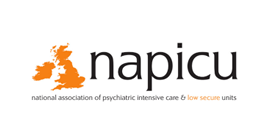
When we drink in these circumstances, alcohol can lead to us feeling:
A glass of wine after work may help us unwind once in a while, but in the long run, it can lead to feelings of anxiety and depression. Our problems are further exacerbated when we start to use alcohol as our emotional crutch. Depending on the initial state we are in, our mood, or situation, alcohol can (especially after one too many drinks) amplify existing issues we may have including:
The regular consumption of alcohol changes the delicate chemistry of our brains affecting our thoughts, feelings and actions. It decreases the levels of serotonin (a chemical in the body linked to happiness levels) in our bodies, leading to an increase in depression and anxiety. We drink to get rid of this low mood, causing even less serotonin to be produced and once we are sober, end up feeling more depressed than before.
Our perception is also reduced when we are drinking, so we are no longer present and cannot read or respond to situations around us clearly, constructively or consistently. This can lead to bigger social problems both with strangers and people we care about including aggressive and abusive behaviour.
If our continued drinking goes unchecked, our ability to deal with our existing problems decreases as we distract ourselves with alcohol. To continue to function and feel somewhat in control, unbothered or ‘at peace’, we drink more and more and an addiction is created, both to the alcohol itself and the way we train our brain to deal with problems.
As with other addictions, drinking alcohol usually starts voluntarily as part of social situations. It becomes an addiction when we feel we need it to get through our day (or night) even when we know it’s problematic.
The root cause of addictions is mixed and can include:
An occasional drink is fine, but if you find you are using it to cope, you should seek help. Your GP will be able to advise you on how you can cut down, control or stop your drinking completely. You may be prescribed a mixture of talking therapies to give you the tools to manage any stress or anxiety as well as medication to help with withdrawal symptoms, such as nausea or hallucinations. We can help you find the right treatment approach for you.
MD, FRCPsych, DPM, Msc, MBBS
Consultant Psychiatrist and CBT Specialist


Dr Pereira helps patients to meaningfully understand, make peace, develop insight and let go of the past – to be precise, clear, connected, resourceful, calm and engaged with the present, in order to release mental space, energy and contentment for the future.
Established private practice
in the City of London
since 1993












